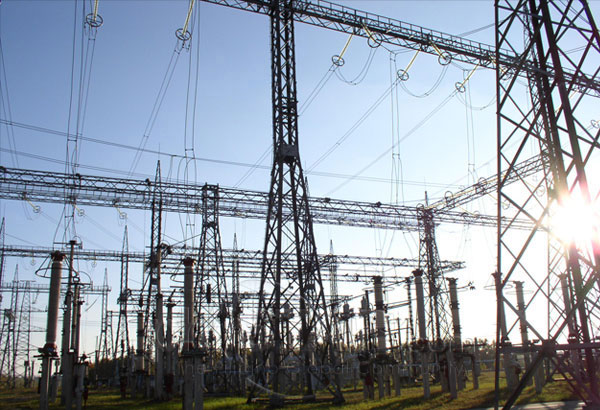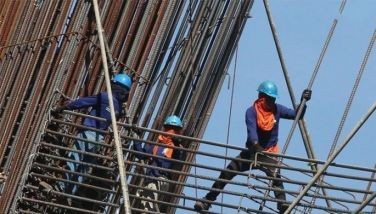#MeToo

When Hollywood mogul Harvey Weinstein’s “casting couch,” a standard industry prop it seems, was exposed for what it really stood for – sexual assault by men in power – it spawned the #MeToo movement in the United States. The movement brought to light a system where perpetrators are often believed, the victims blamed and discredited and where institutions protect perpetrators particularly if they had high status. This soon reverberated around the world. From Stockholm to Seoul, from Toronto to Tokyo, abused women came out to tell their story. Many were taken seriously and powerful men lost their jobs and a few went to prison. And then just last Friday, two activists who have sought to end sexual violence in conflict zones — Congolese gynecologist Denis Mukwege and Yazidi assault survivor Nadia Murad — were awarded the 2018 Nobel Prize. It would seem that global perception and attitude towards sexual harassment and abuse, shaped differently by culture and religion, have reached a point of convergence.
Impact of Kavanaugh confirmation
But the celebration of this revolution in attitude seems short-lived. The confirmation of now Supreme Court Justice Bret Kavanaugh despite the credible allegations of sexual assault by Dr. Ford, however, seems to have dealt a blow to the progress that the #MeToo movement has gained. In one fell swoop, he has changed the narrative on sexual harassment back to the dark ages. With the help of Trump – himself accused of sexual harassment and misogyny – and the GOP establishment, Kavanaugh was portrayed as the innocent victim of a hoax perpetrated by the Democrats. His supporters, while not directly attacking Dr. Ford’s credibility, nevertheless, brushed aside her testimony. The FBI investigation, which was not a criminal investigation, but a background check was instead cleverly used to allow some senatorial fence sitters to find a way out of the dilemma of putting in office someone whose character at the very least is not beyond reproach. It has brought the narrative back to “he said, she said” that has made women reluctant to come forward against their accusers, particularly if they are men in power. Sen. Mitch McConnell dismissed this whole episode saying that it will soon blow over. It will be a sad day if it does.
How about Philippines?
What does this all mean to the Philippines, a contradiction between a traditionally patriarchal, macho society, but where women have played a prominent role in politics and more recently, in business? I have been wracking my brain trying to think of a hashtag to capture the same context in the Philippines, but practically all of them have been taken including #KamiDin and #BabaeKami. The latter is a response to the well-documented misogynistic tendencies of President Duterte.
CCA and GMA role
Perhaps reflective of the macho culture that dominates political leadership in the Philippines, it is not surprising that the major and seminal moments in women’s rights came under our two female presidents. It was from President Corazon Aquino who signed the landmark legislation the Family Code that amounted to the emancipation of women from subordinates to co-equals in a marriage union and gave rights to women in non-marital partnerships. But it was under former president Gloria Macapagal Arroyo’s administration, however, that several laws were promulgated that specifically addressed domestic violence, sexual harassment and abuse against women. RA 7877 declared sexual harassment unlawful in the employment, education or training environment and for other purposes. SBN 356 increased the penalties for wife-beating. Women’s desks were also established to provide assistance to battered wives and other victims of domestic violence and the establishment of the Movement Against Sexual Abuse (MASA). MASA may have been the local precursor of #MeToo but little has been heard about it since.
Numbers shocking but incomplete
The numbers, however, belie the effectiveness of the statutes. They are seldom enforced and victims have been reluctant to bring complaints forward. According to the Center for Women Resources, one woman or child is raped every hour. The DSWD reports that they service upwards of 150,000 women annually who suffer from physical and sexual abuse. The number excludes as yet possibly bigger numbers of women victimized by emotional abuse, and trafficking, among other adverse situations, who have had to suffer in silence and solitude for lack of access to state assistance. The numbers, however, are biased towards the poor.
Gretchen Fullido case
What has been difficult to capture in statistics has been sexual harassment and abuse at the work place which is no less pernicious and harmful to the victims. Again, it is the reluctance to report such incidents that is so common and yet very few ever make it to light. ABS-CBN anchor Gretchen Fullido’s sexual harassment case against ABS-CBN executives may yet prove to be the tipping point to embolden Filipino women to come forward. The Ateneo Student Council is also readying charges against an Ateneo professor for sexual harassment.
Teen pregnancy
The age of consent in the Philippines is 12 years old, astounding for a predominantly Catholic country. It is the lowest in Asia (not just Southeast Asia but the entire Asia which includes the Middle East) and second lowest in the world next only to Nigeria with 11. The average age of consent in the world is 16 years old.
The result, according to senator Risa Hontiveros, is that “about five girls aged 10 to 14 become pregnant or give birth to a child every day. And if you think that child rape isn’t common, the National Baseline Study on Violence Against Children (NBS-VAC) released a report in 2016 stating that one in five children below 18 experienced sexual violence. It was also found that perpetrators are often family members.
We need to create mechanisms that will arrest teenage pregnancies and protect future generations by ensuring our youth get adequate education on their sexuality, their development as teenagers, and responsible personal health,” she said. Senators Risa Hontiveros, Win Gatchalian, and Lilia de Lima have been lobbying to raise the age of consent to 18 years old.
What astounds me is that despite the gains that women leaders have made in politics, there has been a dearth of prominent and influential champions of women’s rights to galvanize a concerted action against sexual harassment and abuse. Senator Hontiveros and Liza Masa have been cited internationally as Filipino women’s rights advocates.
As a father and grandfather, I share the hope of all who have daughters and granddaughters that more should be done in Congress, the workplace, academe and the home.
- Latest
- Trending































